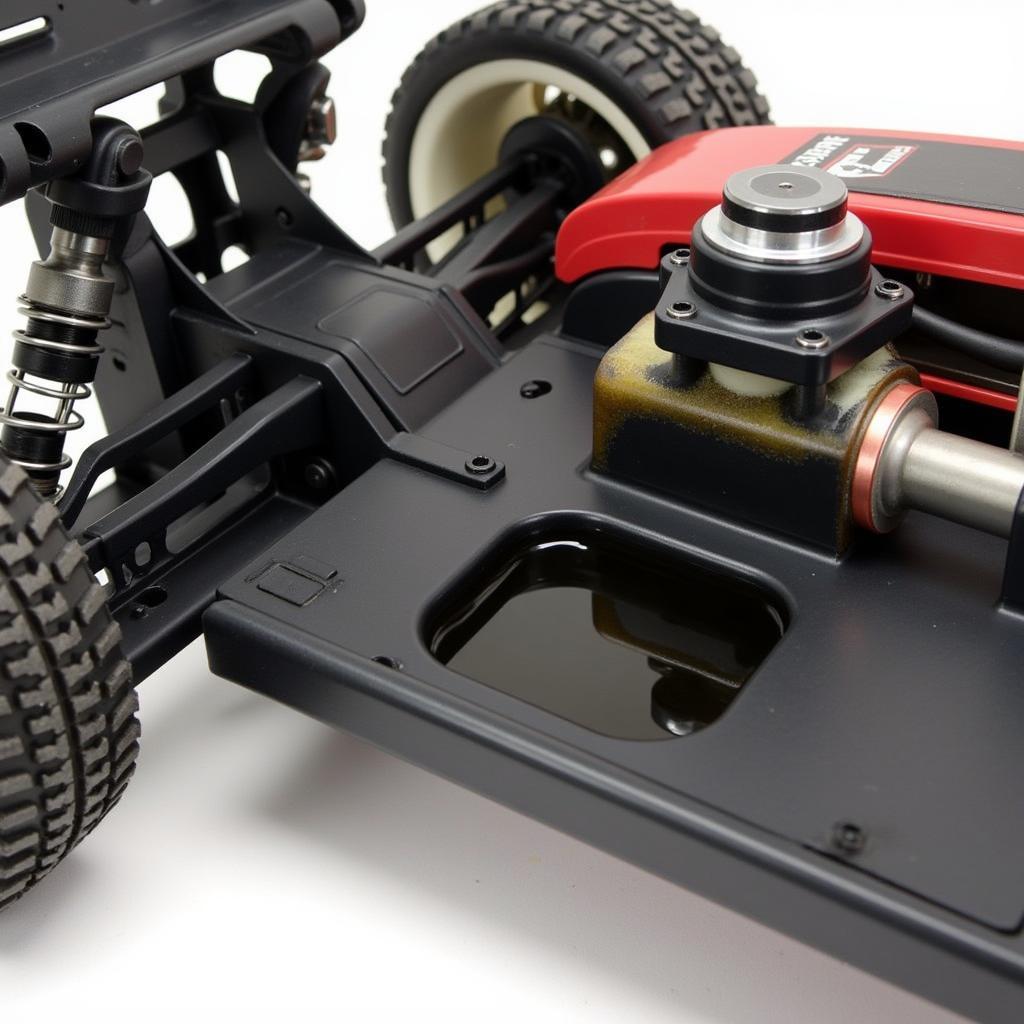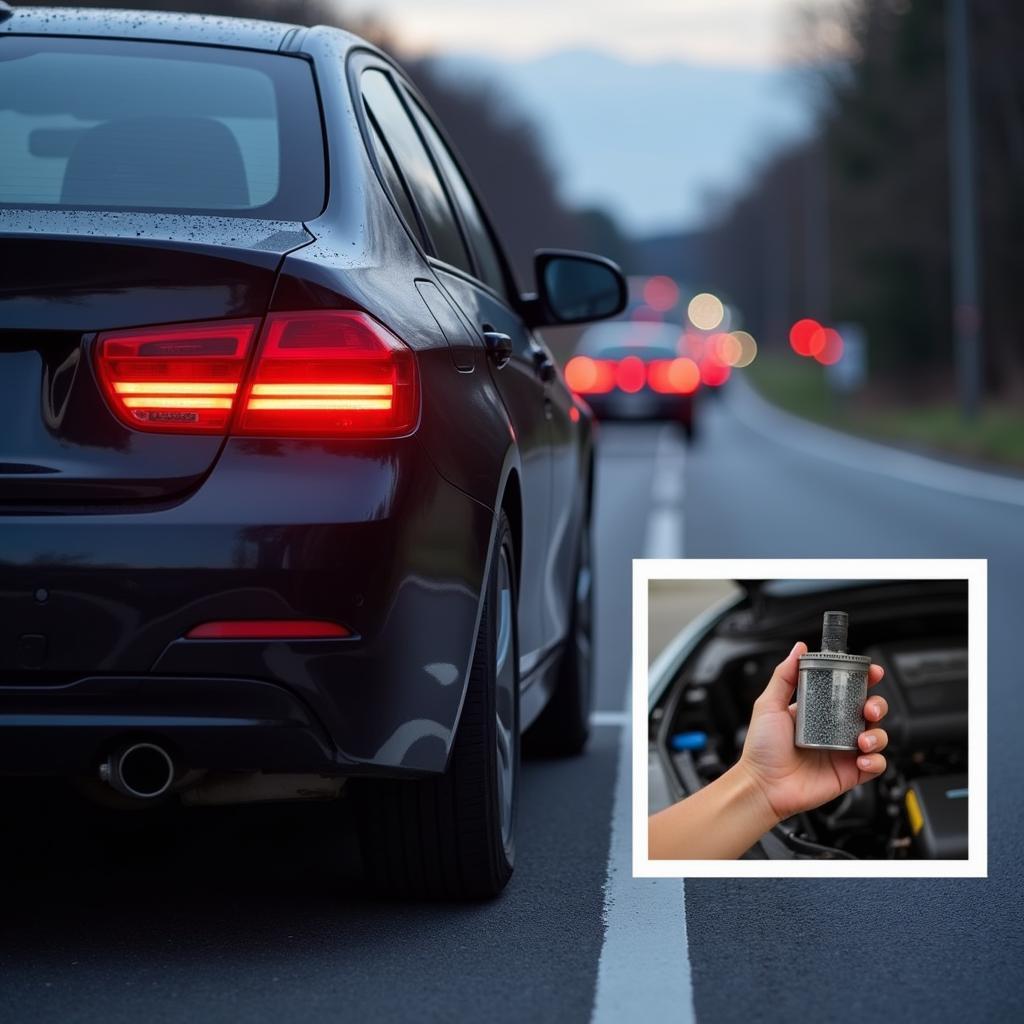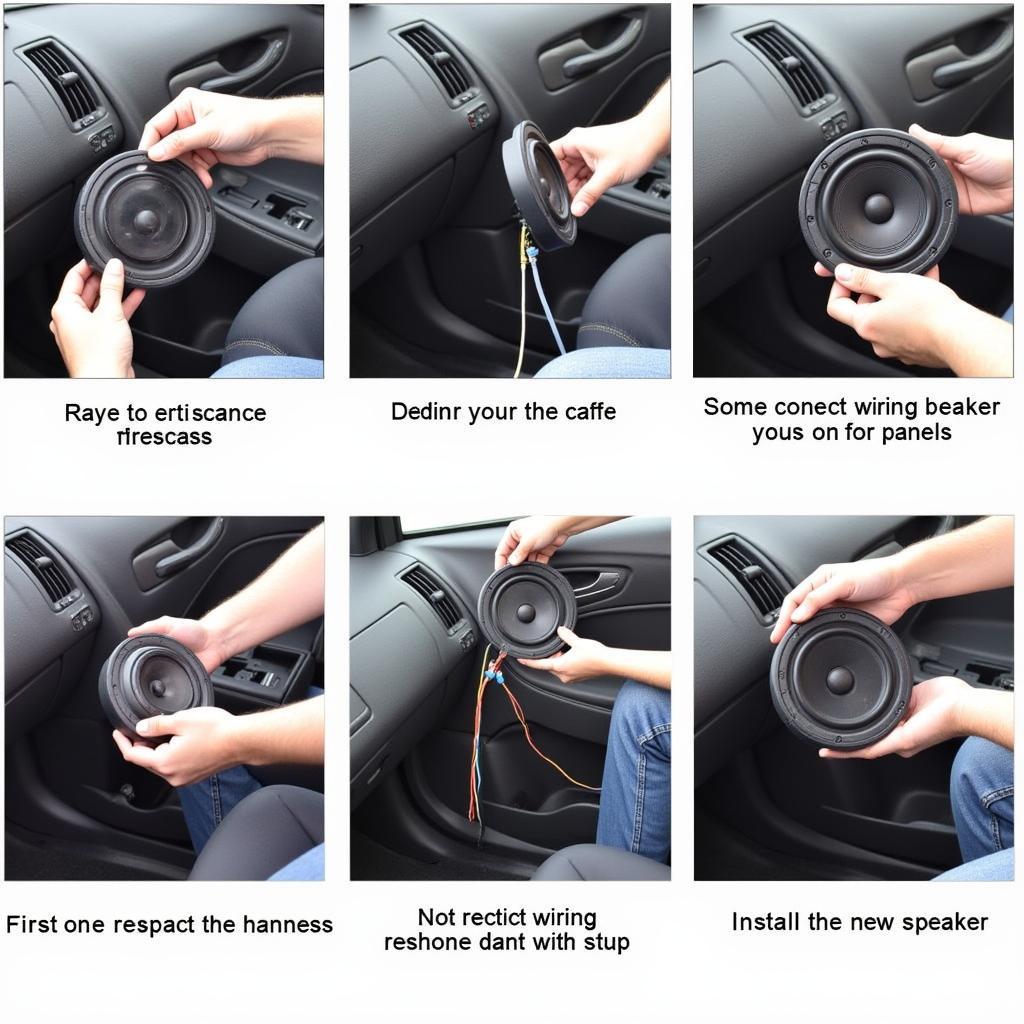Rc Car Differential Problems can significantly impact performance, leading to frustration and lost track time. This article provides a comprehensive guide to diagnosing, troubleshooting, and fixing common differential issues in RC cars, helping you get back on the track quickly.
After a few runs, you might notice your RC car isn’t handling as smoothly as it used to. Perhaps it’s struggling on turns or making unusual noises. These could be signs of rc car differential problems. Understanding how your differential works and how to maintain it can prevent bigger issues down the line and keep your RC car performing at its peak.
Identifying Common RC Car Differential Problems
Several telltale signs indicate potential differential problems. These include:
- Unusual noises: Grinding, clicking, or whining sounds from the differential area during operation often signal gear wear or damage.
- Poor handling: Difficulty turning, especially at speed, can point towards a locked differential or uneven power distribution.
- Uneven tire wear: If one tire wears out faster than the others on the same axle, it may indicate a differential problem.
- Slipping or binding: If the car struggles to accelerate or feels like it’s binding up, the differential could be the culprit.
- Visible damage: Inspecting the differential for broken or stripped gears, loose screws, or leaking fluid is crucial for diagnosis.
4wd differential problems rc car are particularly prevalent in off-road vehicles due to the increased stress on the drivetrain.
Troubleshooting RC Car Differentials: A Step-by-Step Guide
- Inspect the differential: Disassemble the differential and examine the gears for wear, damage, or debris. Look for chipped teeth, rounded edges, or metal shavings.
- Check the fluid: If your RC car uses differential fluid, ensure it is at the correct level and isn’t contaminated.
- Test for binding: Rotate the input shaft and observe the output shafts. They should rotate smoothly and freely. Any resistance or binding suggests a problem within the differential.
- Examine the diff case: Check the differential housing for cracks or damage that could compromise its integrity.
 Leaking differential fluid on an RC car chassis
Leaking differential fluid on an RC car chassis
Repairing RC Car Differential Problems
Once you’ve identified the problem, you can take the necessary steps to repair it. This may involve:
- Replacing damaged gears: Stripped or broken gears need to be replaced with new ones. Ensure the new gears are compatible with your RC car model.
- Refilling or replacing differential fluid: Low or contaminated fluid can cause performance issues. Refill the differential with the recommended fluid type and quantity.
- Cleaning and lubricating the differential: Remove any debris and apply fresh grease to the gears and bearings.
- Tightening loose screws: Loose screws can cause excessive play and damage to the differential. Ensure all screws are properly tightened.
- Replacing the differential case: A cracked or damaged differential housing needs to be replaced to prevent further issues.
“Regular maintenance is key to preventing differential problems,” says John Miller, a seasoned RC car mechanic with over 20 years of experience. “Inspecting and cleaning the differential regularly can significantly extend its lifespan.”
Preventing Future RC Car Differential Problems
race car physics problem often boils down to the mechanical components working in harmony. Similarly, proper maintenance is vital to preventing future rc car differential problems.
- Regular cleaning and lubrication: Clean and lubricate the differential after every few runs, especially after driving in dusty or muddy conditions.
- Use the correct differential fluid: Using the appropriate fluid type and viscosity is crucial for optimal performance and longevity.
- Avoid over-tightening screws: Over-tightening can damage the differential and cause binding.
- Drive smoothly: Aggressive driving can put excessive stress on the differential. Practice smooth acceleration and braking.
“Choosing the right differential fluid for your driving conditions can greatly impact the performance and longevity of your RC car,” advises Sarah Johnson, a professional RC car racer and engineer.
car steering problems help, just like RC car differentials, need attention. Don’t ignore the signs!
Conclusion
RC car differential problems, while frustrating, can be diagnosed and resolved with proper understanding and maintenance. By following the troubleshooting steps and preventative measures outlined in this article, you can keep your RC car performing at its best and enjoy countless hours of fun on the track. Don’t let differential issues hold you back. Contact AutoTipPro at +1 (641) 206-8880 or visit our office at 500 N St Mary’s St, San Antonio, TX 78205, United States, for expert assistance and advice.
amc 10 car problem or golf car problems going might seem different, but the core principle of troubleshooting remains the same.






Leave a Reply